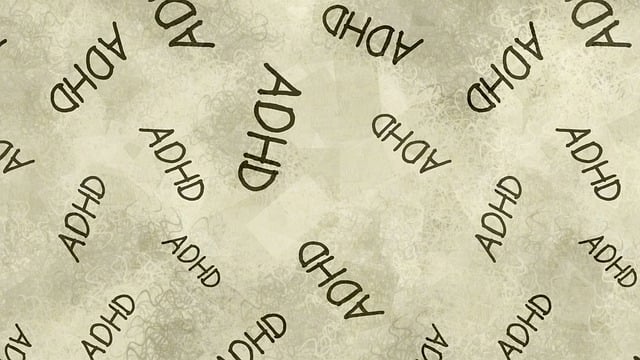In today's complex social landscape, Crisis Intervention Teams (CITs) are vital for addressing high-risk situations, as emphasized by Colorado Springs Divorce Therapy. Through specialized training focusing on self-care, cultural sensitivity, and holistic healing practices, CITs stabilize individuals in distress and mitigate healthcare provider burnout. In the competitive mental health services environment, these programs empower clients and interventionists with stress management, compassion cultivation, and emotional coping mechanisms, leading to improved outcomes for divorcees. Effective CIT training includes comprehensive stress management, role-playing scenarios, and risk management planning, while regular debriefing sessions and evaluation methods ensure high standards of care.
In the complex landscape of mental health support, Crisis Intervention Teams (CITS) play a pivotal role in mitigating high-risk situations. For communities like Colorado Springs grappling with unique challenges, such as the specific pressures of divorce therapy, specialized CIT training is invaluable. This article explores the crucial components and strategies behind effective CIT training, delving into how enhanced communication and collaboration can significantly impact the lives of at-risk individuals in Colorado Springs Divorce Therapy settings.
- Understanding Crisis Intervention Teams: Their Role and Impact
- The Need for Specialized Training in Colorado Springs Divorce Therapy
- Key Components of Effective Crisis Intervention Team Training
- Strategies to Enhance Communication and Collaboration within the Team
- Measuring Success: Evaluation Methods for Crisis Intervention Programs
Understanding Crisis Intervention Teams: Their Role and Impact

In today’s complex social landscape, Crisis Intervention Teams (CITs) play a pivotal role in addressing high-risk situations. These specialized teams, often comprised of trained professionals from various disciplines, are designed to swiftly and effectively respond to crises ranging from suicidal ideation to domestic violence incidents. At the core of their mission is the goal to stabilize individuals in distress and connect them with appropriate support systems.
Colorado Springs Divorce Therapy, for instance, highlights the growing recognition of CITs as essential components of mental healthcare infrastructure. By integrating self-care practices and cultural sensitivity into their approach, these teams mitigate burnout prevention strategies for healthcare providers while fostering a holistic healing environment. Their impact reverberates beyond immediate interventions, promoting community resilience and nurturing healthier, more supportive relationships.
The Need for Specialized Training in Colorado Springs Divorce Therapy

In the competitive landscape of mental health services, providing specialized training for crisis intervention teams in Colorado Springs Divorce Therapy is more critical than ever. The complex dynamics and emotional intensity inherent in divorce situations demand professionals equipped with advanced skills to effectively support individuals navigating this challenging period. Traditional therapy models often fall short when addressing the unique needs of couples facing separation, making dedicated training a game-changer.
Specialized programs focus on equipping therapists with the tools to foster resilience building, compassion cultivation practices, and mental wellness journaling exercises guidance. These strategies empower both clients and interventionists to manage stress, promote healthy communication, and cultivate emotional coping mechanisms. By integrating such practices into their Colorado Springs Divorce Therapy offerings, professionals can enhance their ability to provide compassionate and effective support, ultimately contributing to improved outcomes for those facing divorce.
Key Components of Effective Crisis Intervention Team Training

Effective crisis intervention team training should encompass several key components to ensure preparedness and positive outcomes. First and foremost, it’s essential to provide comprehensive stress management strategies. This includes teaching participants techniques for relaxation, mindfulness, and emotional regulation, empowering them to remain calm under pressure. By mastering these skills, team members can better support individuals in crisis, ensuring their well-being and safety.
Additionally, training should focus on coping skills development. Equipping individuals with a toolkit of effective coping mechanisms allows them to navigate challenging situations adaptively. This involves role-playing various crisis scenarios, facilitating open discussions about mental health challenges, and encouraging the adoption of positive self-care practices. Through these means, Colorado Springs divorce therapy programs can promote emotional well-being promotion techniques, fostering resilience and empowering individuals to overcome crises with greater ease.
Strategies to Enhance Communication and Collaboration within the Team

Effective communication is a cornerstone of successful crisis intervention teams. Training should emphasize open dialogue and active listening to foster an environment where team members feel comfortable sharing insights and concerns openly. Role-playing scenarios that mimic real-life crises can help hone communication skills, ensuring everyone involved learns to articulate their thoughts clearly under pressure. By practicing these strategies in controlled settings, the team in Colorado Springs Divorce Therapy can develop a cohesive workflow, improving both efficiency and emotional regulation during actual interventions.
Collaboration is enhanced when team members understand each other’s roles and responsibilities. Risk Management Planning for Mental Health Professionals should be integrated into training to equip the team with tools to navigate complex situations safely. Emphasizing mental wellness through regular debriefing sessions allows the group to discuss emotionally taxing cases and practice emotional regulation techniques collectively. This not only strengthens their individual resilience but also fosters a culture of mutual support, which is crucial for maintaining high standards of care in challenging scenarios.
Measuring Success: Evaluation Methods for Crisis Intervention Programs

Measuring success is a critical component of any crisis intervention team training program, ensuring that skills learned translate into positive outcomes for individuals in distress. Evaluation methods should be comprehensive, focusing on both short-term and long-term impacts. One effective approach involves pre-and post-training assessments to track improvements in participants’ emotional resilience and coping mechanisms. These evaluations can include standardized questionnaires and qualitative feedback to gauge the program’s effectiveness.
At Colorado Springs Divorce Therapy, for instance, therapists emphasize the integration of Mind Over Matter principles and Self-Care Practices into crisis intervention strategies. Post-training, clients are assessed on their ability to apply these techniques during real-life crises, with follow-up sessions facilitating emotional healing processes. This structured evaluation ensures that the program meets its objectives, fostering not only competent crisis responders but also individuals equipped to navigate life’s challenges with enhanced resilience and self-awareness.
Crisis intervention team training is a vital component in addressing emotional crises, especially in complex scenarios like Colorado Springs Divorce Therapy. By equipping professionals with specialized skills, these programs enhance the overall effectiveness of crisis response teams. Through comprehensive training that covers communication strategies and collaborative practices, teams can better navigate challenging situations. Evaluation methods ensure continuous improvement, allowing for tailored interventions that positively impact those in need. Investing in such programs is essential to fostering a supportive environment and improving outcomes for individuals facing crises, particularly within the unique context of Colorado Springs Divorce Therapy.














